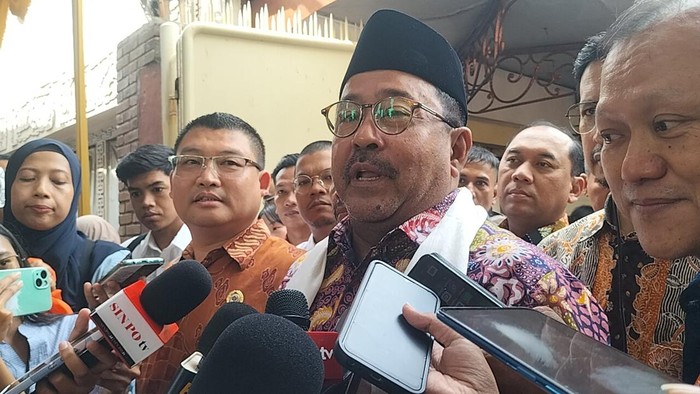Jakarta —
The Deputy Governor of Jakarta (Doeil) spoke about the first 100 days of work, stating that the main issue in Jakarta currently relates to disparity or social inequality. Rano Karno mentioned that he and Jakarta Governor Pramono Anung are committed to continuing to reduce poverty.
«We are not changing the grand vision; we are not widening Jakarta’s roads or constructing buildings and such,» said Rano Karno after leading the Pancasila Birth Day ceremony at Jakarta City Hall, Monday (2/6/2025).
«But more importantly, the Governor often speaks about the disparity in Jakarta, where the gap between the rich and the poor is too wide,» he added.
Rano Karno acknowledged that Jakarta is a city of contrasts. He mentioned that currently, around 6,000 diplomas have not been claimed due to economic constraints.
«But at the most basic level, nearly 6,000 of our children’s diplomas remain unclaimed because of economic reasons—it’s that simple, yet we are addressing it,» he said.
«Then, the KJP (Jakarta Smart Card) program, ranging from Rp 500 thousand to Rp 700 thousand, is indeed not massive—we don’t need a colossal movement,» he continued.
Currently, he said, the administration is focusing on strengthening the foundation. They have recently upgraded JAKI to better serve public needs.
«We are just strengthening the foundation. Recently, we upgraded JAKI because the demand for ambulances and other services has increased. We are not building luxurious structures, but in this five-year plan, we are developing. For the first 100 days, there are only 40 programs—nothing too large, just the most fundamental ones,» he explained.
Jakarta City Hall
Pancasila Birth Day
Jakarta Smart Card (KJP)
JAKI
If you meant a different name (e.g., *Jaisalmer Fort* in India or *Jakhi Temple* in Georgia), I’d be happy to summarize that instead.





![Partai Kebangkitan Bangsa (PKB) menggelar lomba desain karikatur Ketua Umum PKB Muhaimin Iskandar alias Gus Imin. [Suara.com/dok]](https://asiacity.news/wp-content/uploads/2025/07/43754-karikatur-150x150.webp)